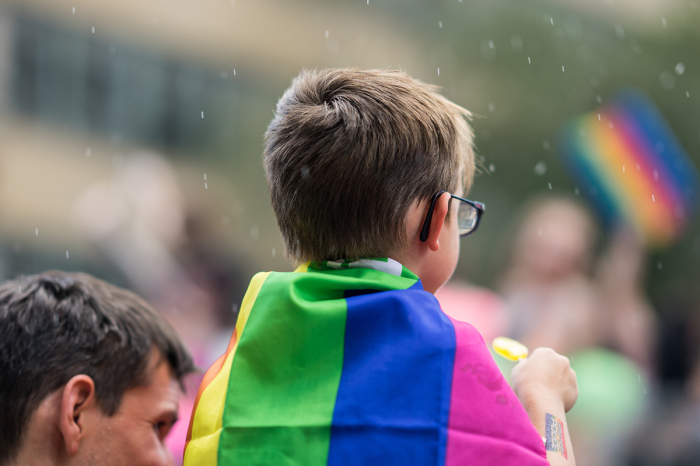
In a recent episode of the “Generation Indoctrination” podcast, host Brandon Showalter revisited the early voices who raised alarms about gender ideology and spotlighted families and advocates still grappling with its aftermath.
In the episode, “Picking Up the Pieces: Life After the Gender Wars,” Showalter reflected on his own reporting journey, recalling how, in 2017, he attended a Heritage Foundation panel called “Biology Is Not Bigotry,” which featured voices across the political spectrum, including Christian conservatives and radical feminists.
“Mere months after I started as a journalist in 2016, I began to see how language was shifting in the mainstream news media,” he said. “When I left that panel, I thought my head would spin off my body.”
Among those featured are Kaylee Triller Harms, a former YMCA communications director who lost her job after refusing to support locker-room policies based on clients’ self-declared gender identity, and Miriam Ben-Shalom, a Jewish lesbian activist and veteran who became outspoken after questioning transgender policies online.
Ben-Shalom recalled how quickly she faced backlash. “I didn’t know, but I sure got educated really quickly,” she said of her first public comments critical of transgenderism. “I really don’t give a darn what people think of me, if my legacy depends on having to affirm a mental illness.”
Triller Harms described the shock of realizing the medical industry was performing experimental surgeries on children. “For me, it was like descending into multiple layers of Dante’s Inferno,” she said. “When I saw a phalloplasty arm … I couldn’t comprehend that degree of wickedness.”
Listen to the Generation Indoctrination podcast
The episode also highlighted parents like Helen, who fought a years-long custody battle after her young son was encouraged to live as a girl by her ex-partner and preschool.
“I feel very grateful, but very sort of like there’s so many people that didn’t have my luck and didn’t have my resources,” she said. “Sometimes I feel like I should be doing more to help somebody else get through this.”
Though she ultimately gained medical decision-making power, Helen said the trauma of fighting for her child lingers. “My whole worry can be summed up as, is my son going to be OK?” she said.
Jennifer Balance, a licensed clinical social worker and director of the Center for Family Studies at the Family Research Council, called for a reevaluation of the psychiatric framework surrounding gender identity.
“We are seeing the breaking of the stronghold of this ideology over the hearts and minds of Americans,” she said.
But she cautioned that the profession must “root out the actual weeds” of ideology within clinical practice. Balance also challenged the terminology of “detransitioners,” saying, “If you’ve never transitioned, really, because you physiologically cannot transition, then how can you detransition? You’re just simply coming back to your true identity.”
Showalter asked his guests where the movement goes from here. Both Ben-Shalom and Triller Harms emphasized courage and truth-telling.
“It is not a kindness to stay silent about this,” Triller Harms said. “People need to learn to care about things, even if they aren’t personally affected by it.”
Ben-Shalom added that exposing the reality of medicalized gender interventions might be the most powerful way to convey the stakes. “A picture sometimes can be worth 1,000 words,” she said.
As Showalter framed it, the episode is about “those picking up the pieces from the Gender Wars” — advocates, parents and professionals who continue to reckon with what he called “one of the worst medical scandals in history.”














